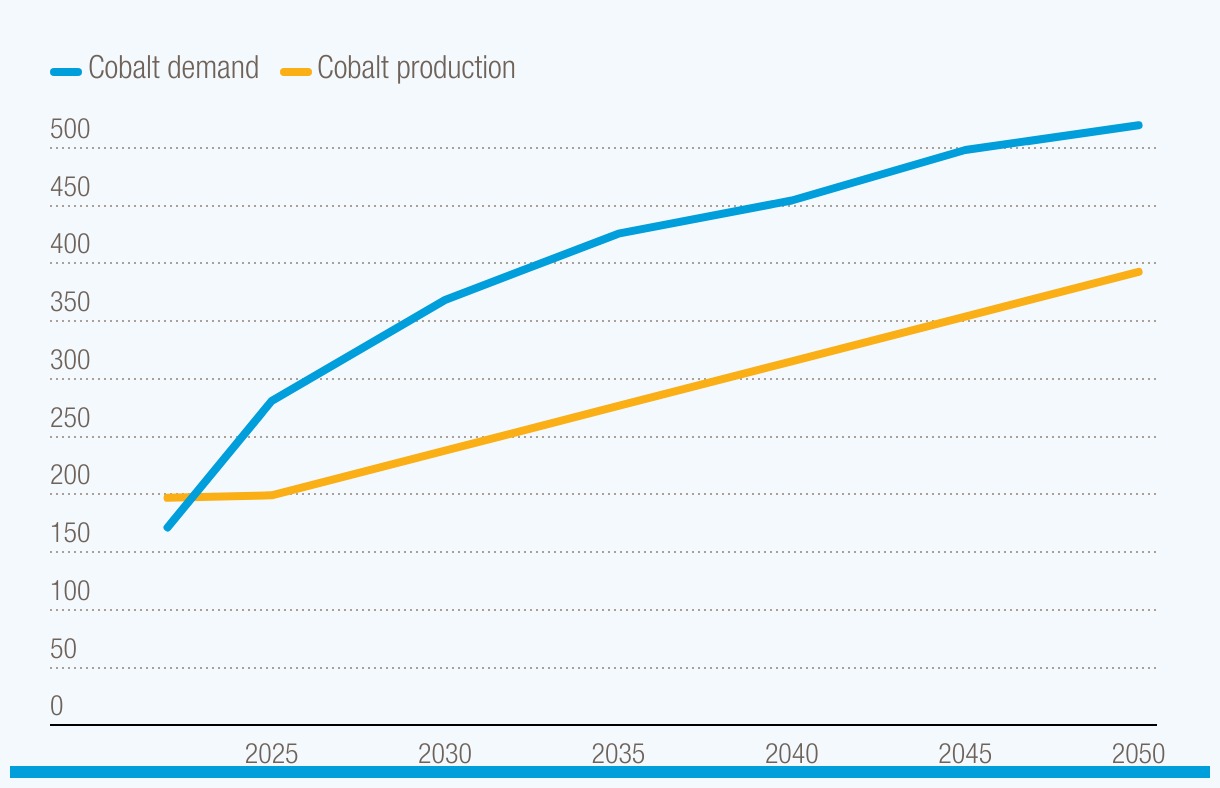The global race to secure supply chains for critical metals and minerals essential for the energy transition is intensifying. Companies are maneuvering for position within shifting production networks, while legislatures are advancing packages to reduce dependence on China, which has dominated the industry for decades.
The quest for mineral resources raises concerns about environmental and labor practices, particularly in developing countries.
Surging demand for critical minerals like cobalt, lithium, and copper is driving the competition. According to a recent UN report, demand for these minerals will outpace production through 2050, with lithium demand expected to triple by 2045. Copper demand for new energy systems is also projected to increase.

Demand for Critical Minerals Fuels (Credits: unctad)
The concentration of critical minerals in specific countries and regions puts pressure on supply chains and trade relationships. For example, more than half of the world’s lithium is found in just three South American countries, while Indonesia and Australia hold 42% of the world’s nickel. China dominates the purification and mineral refining capacity, posing a serious concentration risk.
Lawmakers are seeking to diversify supply chains and strengthen ties with allies. A bipartisan proposal would require regular reports to Congress on the origin of critical minerals and rare earth elements, as well as political and market forces affecting producers. Some companies are exploring alternative technologies to reduce dependence on critical minerals.
The scramble for minerals also raises environmental and labor concerns. Deep-sea mining, for instance, is a highly destructive extractive industry that risks causing irreversible environmental damage.
Environmental groups are strongly opposed to seabed mining, while human rights groups have criticized labor practices in developing countries, particularly in cobalt mining in the Congo.

Critical minerals boom (Credits: unctad)
As the US redesigns its mineral supply chains, some companies are trying to stay above the fray by developing alternative technologies that don’t rely on critical minerals. Niron Magnetics, for example, has developed a technology to build magnets from widely available iron and nitrogen materials, reducing dependence on rare earth minerals.
The labor and humanitarian implications of the scramble for critical minerals are growing increasingly urgent as economic demand increases.
The harsh realities of cobalt mining in the Congo, for instance, have been likened to colonial-era barbarisms. Companies and governments must address these concerns to ensure a sustainable and responsible energy transition.























